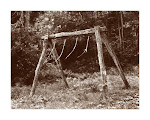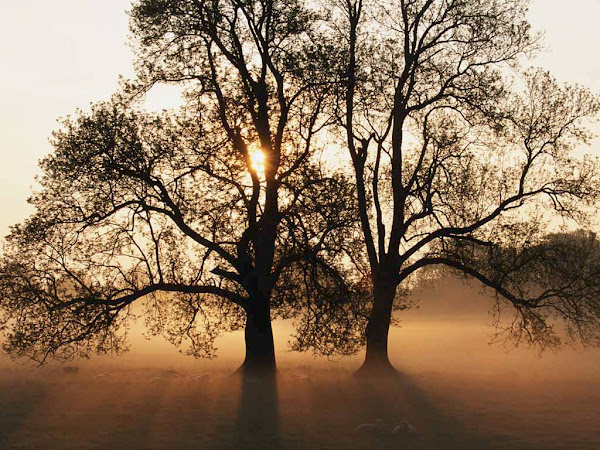I believed the story. Go to school, study hard, get a job, work hard and you will be rewarded. On some fundamental level this is not a lie. However, like all truths, they sit contextually in time and space and this work/job narrative is not merely under attack but has probably not been true for at least a couple decades if ever.
As a boomer these kinds of stories die hard. Be it Leave it to Beaver or Father’s Knows Best, my early years of TV were the myths poured into a highly porous child's soul. Years later I can be naively optimistic even to the point where I am abused and taken advantage of. I am a hopeless romantic and yet a practiced pragmatist to my core. Doctor Phil’s mantra, “Is that working for you?” humorously reflects how my generation thinks about life. Are you happy? Are you fulfilled? Is life working to your advantage? Are your relationships adding something of value to you and your dreams? This may not be all that Dr. Phil means in that question but the end results for me goes to the bottom-line. Why am I here doing what I am doing? Is it serving my ultimate goals, my ultimate direction in life? Is this bringing clarity to the journey upon which I have pointed my life?
Oh that life were so malleable that all one had to do is ask the right questions. Oh that life was cooperative with us such that all our dreams and aspirations were in collusion with the universe and God was indeed our private concierge, life coach, or personal shopper. We may recoil at those statements attached to God but indeed we do come into the cosmic conversation with some highly untested assumptions about what we “want” out of life.
The past few decades has seen the rise in the Protestant interest in monastic orders. I for one have been deeply interested in the lives of men and women like Thomas Merton and Mother Teresa but upon a more in-depth study of these individuals one finds an entirely different world beneath the biographies offered in the common parlance of the media and press. These people were not merely great individuals but people formed by commitments and vows. They were highly submitted believers to a rule that for most today would be repressive and indeed absurd and confining.
The paradoxical sense of these individuals’ lives reveals something about mine. Why would a vow of poverty, chastity and obedience seem so alien to me? Why would a lifelong commitment to one place seem not merely odd but dangerous and even wrong?
Once again I ask myself those same seemingly pragmatic questions. Where am I going? How do I intend to get there? And….what is the road I must travel upon to arrive at this destination? In Dennis Okholm’s most recent work “Monk Habits for Everyday People,” he explores the vow of stability in the lives of Benedictine monks. Okholm, a professor at Azusa Pacific University, teaches a course on spiritual formation and explores with his students the lives of monastic orders. Benedict is an interesting character who preceded the Reformation by a millennium. What is highly interesting to Okholm and to many who are now sensing this renewed interest in monastic orders is the similarity in cultural and historical happenings between then and now. Okholm goes on to say, “….He was heir to the deteriorating political environment of the Roman Empire’s last days. The fifth century into which he had been born had in common with our twenty first a struggle to make sense of the troubled and torn world that people were experiencing. Rome had fallen and had been sacked several times, by the Goths, Vandals, and Lombards. The dismembered Western Empire, once ruled by the “eternal city,” was not only in political chaos but troubled by ecclesiastical dirty dealings and underhanded ploys to win theological battles over the crucial issues of grace and the divine nature of Christ.”
How much our times were like those times is always a projection but it is clear that Benedict and the monks of his age felt a need to withdraw and a need to preserve. They sensed that the times demanded a much more diligent and severe commitment to the call of Christ and were not convinced that the Church was carrying that call with clarity and power. Sound familiar?
There are many differing groups and contingencies that are engaged in a discussion about where the Church is headed. I would contend that we very well might be much worse off than we naively optimistic baby boomers can tolerate. We want to soften the blow, lessen the pain, and give it to people slowly. It may be that drastic times need drastic measures.
The title of this article was borrowed from a phrase Okholm used in his book on Benedict in which the issue of "remaining in a community" impacted one’s ability to receive and know the full depth’s of Christ’s call on one’s life. How can I grow into the character of Christ when I am always on the move, always looking for that place in which I can spread my wings? Maybe my wings need to be clipped. We have a saying in our community that the self is communally constructed. We are a person comprised of varied peoples. Each day I walk with the same people is one more day I begin to know their hearts. That means I know the shadow as well as the light, the sorrow as well as the joy.
This tendency to run and avoid commitment seems to be a part of our age. It appears that the constant moving not only allows for the devout mask to remain but makes the removal nigh unto impossible. Rowan Williams puts it this way when he says, “The barriers of egoistic fantasy are broken by the sheer brute presence of other persons.” I am only conformed to the likeness of our Lord when I am in relationship with others and the reality of my sin and the beauty of my glory dawn upon my deepest parts. This is real conversion.
The constant search for fresh stimulation is the way a consumer society forms me. I want more. Be it actual goods or even spiritual experiences. Give me more and give me more when I want it. Being steadfast is a concept that is foreign to most of us today. What might it look like for me to remain? To stand firm, to stand beyond fear? To walk truly in faith when my sight is blinded by suffering and sacrifice?
Okholm offers us this pithy insight when he says, “We will discover our true selves as we patiently simmer in communities and relationships to which God has called us. And we will find God there as well, because if we cannot find God where we are, we will not find him elsewhere.” Okholm says it well, “…the irony is that we must stay in the same community in order not to stay in the same relationship with God.”
As John Henry Newman wisely discerned, “In a higher world it is otherwise, but here below to live is to change, and to be perfect is to have changed often.”
Here’s to staying put to get somewhere!!!!!
The Circle Gift
To posses is to give
To own is to share
A trustee, I receive
I dispense
I distribute
I keep the circle round
As the gift moves
From hand to hand
From heart to heart
No bartering here
I offer up my gift in silence
Not wondering aloud what will return
A part of my very soul travels with the gift
I keep the circle round
I give you what you did not give me
And you likewise do the same
Passing it around the circle
No reciprocation here
Only blind gratitude
For the circle gift keeps growing
Not from an ego of one
Or two lovers opened at the heart
But a trinity who keep the motion going
So the gift circles into mystery
Leaves our hands and returns in jubilation
Enlarged by its abundant exchanging
The passing from hand to hand its divine replenishment
Keep the gift alive and well!!
Friday, July 25, 2008
Subscribe to:
Post Comments (Atom)




No comments:
Post a Comment